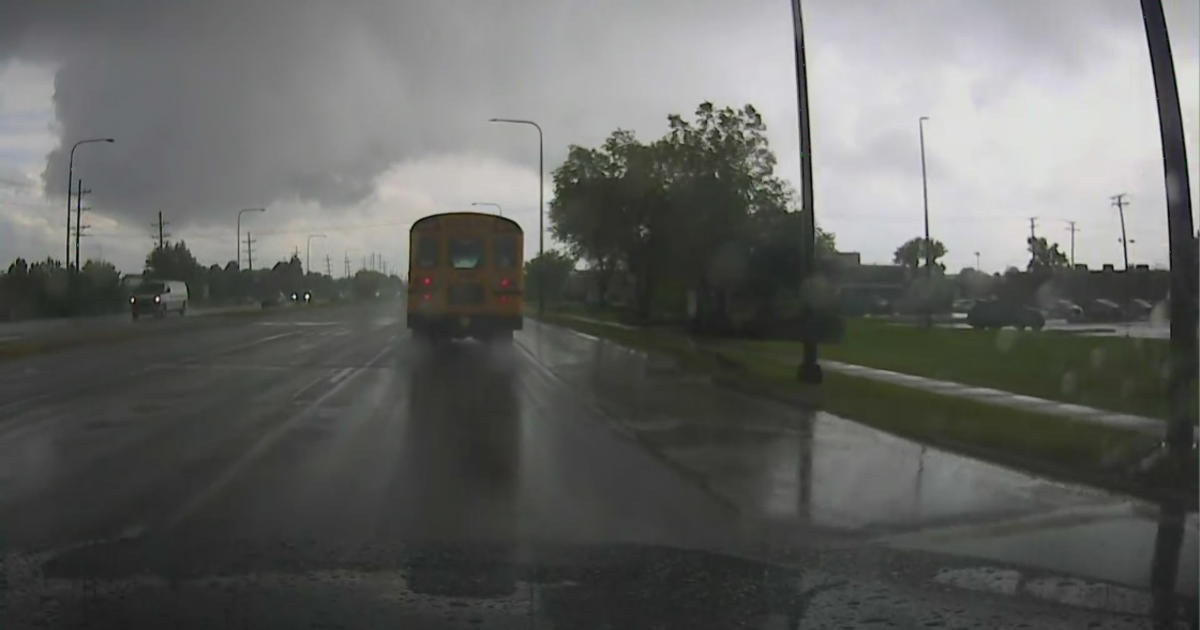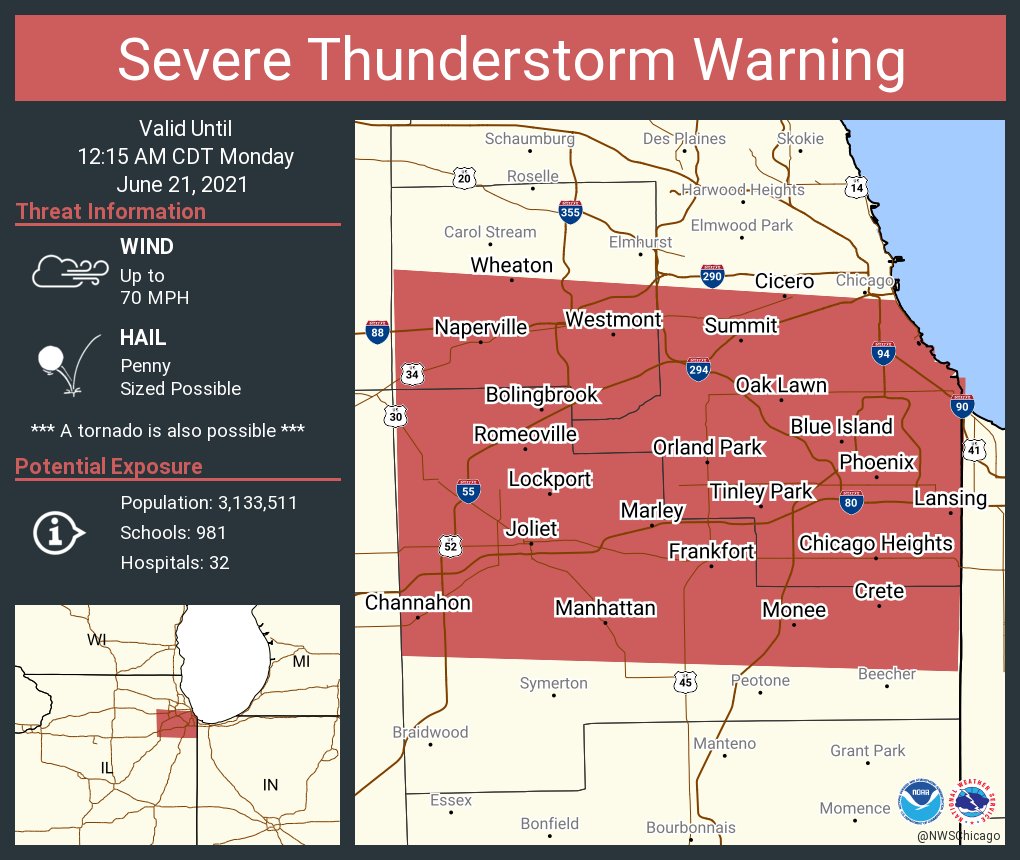When it comes to extreme weather, tornadoes can strike without much warning, and Chicago is no stranger to these powerful storms. Tornado warning Chicago is a term that has become increasingly important for residents, especially as climate patterns continue to shift. Understanding what a tornado warning means, how to prepare, and what actions to take can be the difference between staying safe and facing disaster.
You know how sometimes the sky just looks... wrong? Like it's this eerie shade of green or there's this strange silence before the storm hits? That's when you need to pay attention, because tornadoes don't mess around. Chicago has seen its fair share of severe weather, and being prepared is key to surviving these unpredictable forces of nature.
So, buckle up, folks. In this article, we're diving deep into everything you need to know about tornado warnings in Chicago. We'll cover what they mean, how to prepare, and most importantly, how to stay safe when the skies turn nasty. Let's get started!
Read also:Atleacutetico Nacional Vs Tolima The Ultimate Rivalry In Colombian Football
Here's a quick table of contents to help you navigate:
- What is a Tornado Warning?
- Chicago's Tornado History
- Understanding Tornado Warning Systems
- Preparing for a Tornado
- Safety During a Tornado
- After the Storm
- Common Myths About Tornadoes
- Resources for Staying Safe
- Tornado Season in Chicago
- Conclusion
What is a Tornado Warning?
Alright, let's break it down. A tornado warning is NOT just some random alert that pops up on your phone. It's a serious heads-up from the National Weather Service (NWS) that a tornado has been spotted or is imminent based on radar. This means you need to act fast because time is of the essence.
Tornado Warning vs. Tornado Watch
Now, here's the deal: there's a difference between a tornado warning and a tornado watch. A tornado watch means conditions are favorable for a tornado to form, but it hasn't happened yet. Think of it like being on standby. A tornado warning, on the other hand, means a tornado is either on the ground or about to touch down. That's when you need to take immediate action.
So, if you hear "tornado warning Chicago," it's time to get to a safe place, pronto. No excuses, no delays. Your life could depend on it.
Chicago's Tornado History
Chicago might not be the first place you think of when it comes to tornadoes, but trust me, the Windy City has seen its share of twisters. In fact, Illinois ranks pretty high in terms of tornado frequency. So, let's take a quick trip down memory lane to see what Chicago has faced in the past.
Notable Tornadoes in Chicago
One of the most infamous tornadoes to hit Chicago was the Palm Sunday tornado outbreak in 1965. This series of storms caused widespread destruction across the Midwest, including significant damage in the Chicago area. More recently, in 2013, a tornado touched down in the suburb of Washington, Illinois, causing devastation and reminding everyone that tornadoes can strike anywhere, anytime.
Read also:Boeser Has 2 Goals Assist In Canucks Win Against Jets Ndash A Gamechanger Night
These historical events highlight the importance of being prepared. You never know when the next big one might hit.
Understanding Tornado Warning Systems
Alright, let's talk about how the system works. The National Weather Service uses advanced radar technology to detect tornadoes. When a potential tornado is identified, they issue a warning, which is then broadcast through various channels, including TV, radio, and mobile alerts.
How to Receive Alerts
- Sign up for weather apps that send push notifications.
- Invest in a NOAA weather radio for real-time updates.
- Stay tuned to local news stations during severe weather events.
Having multiple ways to receive warnings is crucial because you never know which system might fail when you need it most.
Preparing for a Tornado
Preparation is key to surviving a tornado. You don't want to be scrambling for supplies when the sirens go off. Here's what you need to do:
Create a Safety Plan
Every household should have a tornado safety plan. Identify the safest place in your home, which is typically a basement or an interior room on the lowest floor. Make sure everyone in your family knows where to go and what to do.
Stock Up on Supplies
- Water and non-perishable food for at least three days.
- A first aid kit and any necessary medications.
- Flashlights and extra batteries.
- A portable charger for your phone.
These supplies can make a huge difference if you're stuck without power or access to stores after a storm.
Safety During a Tornado
Okay, so the warning is out, and the tornado is approaching. What do you do? Here's the lowdown:
Stay Indoors
If you're inside, head to your designated safe spot immediately. Avoid windows and exterior walls. Cover yourself with blankets or a mattress to protect against flying debris.
If You're Outside
Find shelter if possible. If you can't, lie flat in a ditch or low-lying area and cover your head with your hands. Do NOT seek shelter under overpasses or bridges; they can become death traps in a tornado.
Remember, every second counts when a tornado is bearing down on you. Act quickly and stay calm.
After the Storm
The tornado has passed, but the danger isn't over yet. Here's what to do next:
Check for Injuries
Tend to any injuries and call for help if necessary. Be cautious of downed power lines and other hazards as you assess the damage.
Stay Informed
Keep listening to local news for updates on the situation. There might be additional storms or hazards in the area.
Recovering from a tornado can be a long and difficult process, but having a plan and staying informed can make it a little easier.
Common Myths About Tornadoes
There's a lot of misinformation out there about tornadoes. Let's clear up some of the biggest myths:
Myth: Tornadoes Only Happen in Tornado Alley
Wrong! Tornadoes can occur anywhere, including Chicago and its surrounding areas. Don't let geography lull you into a false sense of security.
Myth: Opening Windows Will Equalize Pressure
This is a big no-no. Opening windows can actually make things worse by allowing wind and debris inside. Stick to your safety plan instead.
Knowing the facts can save your life when a tornado strikes.
Resources for Staying Safe
There are plenty of resources available to help you stay safe during tornado season:
Local Emergency Services
Reach out to your local emergency management office for information on preparedness and response plans.
Weather Apps
Download apps like Weather Underground or the Red Cross Emergency App for real-time alerts and updates.
Utilizing these resources can give you a leg up when it comes to staying safe during severe weather.
Tornado Season in Chicago
Tornado season in Chicago typically runs from late spring to early summer, but tornadoes can occur at any time of the year. This is why it's important to be prepared year-round.
Seasonal Patterns
During tornado season, keep an eye on the weather forecast and be ready to act if conditions become favorable for tornado formation.
Staying informed about seasonal patterns can help you anticipate when severe weather might strike.
Conclusion
So, there you have it, folks. Tornado warning Chicago is something you need to take seriously. By understanding what a tornado warning means, preparing ahead of time, and knowing what to do during and after a tornado, you can significantly increase your chances of staying safe.
Remember, preparation is key. Don't wait until the last minute to get ready. Take action now, and encourage your family and friends to do the same. Share this article with them, leave a comment below if you have any questions or tips, and check out our other articles for more valuable information.
Stay safe, stay informed, and keep an eye on the skies. You never know when a tornado might pay Chicago a visit!


